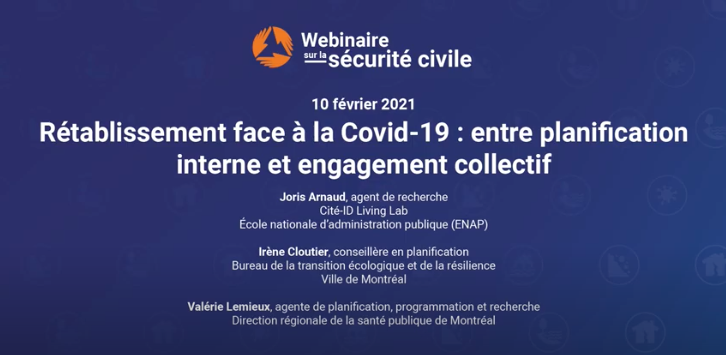Urban
Resilience
Governance
Webinar on civil security
On February 10, 2021, Joris Arnaud, a researcher with Cité-ID, joined Irène Cloutier from the City of Montréal’s Office of Ecological Transition and Resilience, and Valérie Lemieux of the Montréal Regional Public Health Directorate, to offer an initial webinar on civil security in a series organized by Quebec’s Ministry of Public Security. The webinar explored challenges related to Montréal’s recovery following the Covid-19 pandemic.
Joris Arnaud took the opportunity to present preliminary results from Cité-ID’s research on the links between post-crisis recovery and Montréal’s social fabric. The research, conducted in collaboration with the ASCQ and the Ministry of Public Security, looked at how the social ties of Montrealers influence individual and collective resilience in the context of the COVID-19 pandemic. Following an approach similar to research in Boston and New York City, Cité-ID’s team conducted a survey with residents of six Montréal boroughs to find out about their social connections in the context of the ongoing pandemic. The results show, notably, an increased mistrust of strangers, but confidence in public health directives.
The study was based on the concept of build back better adopted by the United Nations, along with the Sendai Framework for Disaster Risk Relief 2015 – 2030. These approaches suggest that post-COVID recovery must take social and environmental factors into account to stimulate the revitalization of individuals and communities.





